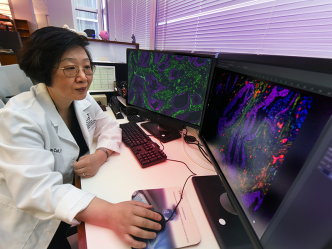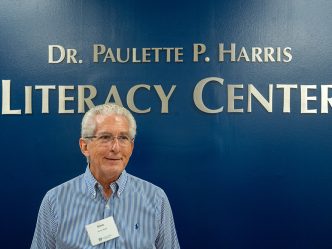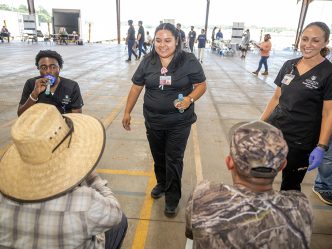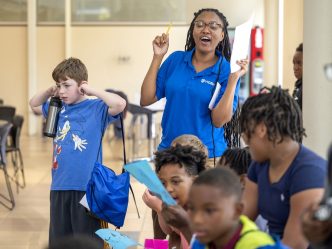A three-year grant totaling $500,622 has been awarded to Dr. Ahmed Aleroud, associate professor in the Augusta University School of Computer and Cyber Sciences and principal investigator of the grant. Dr. Craig Albert, director of the Master of Arts in Intelligence and Security Studies program in Pamplin College of Arts, Humanities, and Social Sciences, will serve as senior personnel.
The grant from the Office of Naval Research’s Social Networks and Computational Social Science Program will fund a project that creates new algorithms to mitigate social cyberattacks in Arabic-speaking countries. According to the faculty, the impact of this project is critical and will advance cybersecurity intelligence and digital forensics research.
“In the era of social media, social media cyberattacks are carried out by one or more actors — including both bots and human users — by engaging other users to create influence campaigns to polarize topic-oriented groups through sets of content-based and centrality-based intentional cyber-mediated methods,” said Aleroud. “This project will test recent deep-learning methods such as adversarial models to detect and assess the impacts of such attacks, even on multimedia content such as images or videos.”
According to the grant proposal, recent studies have shown that misinformation is spreading in 25 different languages, leading to deaths and injuries. Studies have also shown several attempts to discredit the power of U.S. governmental institutions through the spreading of misinformation on social media.
The project will focus on the Arabic language, which is one of the 10 most-spoken languages in the world. While some researchers have investigated diverse forms of language-based attacks in Arabic, limited attention is paid to studying social-mediated cyberattacks and their influences on the targeted countries, which include the U.S., Albert said.
“We will use machine-learning techniques to detect social cyberattacks such as rumors, conspiracy theories, mis- and dis-information, cyber-bots, anger and hate discourse, state-sponsored attacks or cyberattacks that impose damage to humans and organizations,” Aleroud said.
Aleroud and Albert agree it’s possible to examine the connection between social media cyberattacks and social media discourse in the Arabic language, and determine measures to pre-empt or prevent possible online cyberattacks.
“This has the potential to help create better discourse, dialogue, national security measures and policy options cross-nationally and cross-culturally,” both said.
“We learn what is in the literature, what is missing, what hasn’t been approached, and what areas are still under-investigated and could have potential breakthrough solutions for national security and policy orientations for the United States.”
The project will create a new computational framework for analysis and mitigation of social cyberattacks in Arabic-speaking countries including Syria, Lebanon, Saudi Arabia, Iraq, Egypt and Jordan.
The framework is driven by approaches from social network analysis, data mining, machine learning, natural language processing, graph mining, politics and social sciences. It will also utilize graph centrality and language models to measure how stories are developed to create topic-oriented communities in Arabic social media.
“This research grant paves the way for using machine-learning techniques, natural language processing, open-source intelligence and graph-based anomaly detection techniques for social media cyberattacks assessment and detection moving forward,” added Aleroud.
Aleroud has been working on this project for several years, having conducted research on using computational models to detect cyberattacks. Both agree getting a grant like this is rewarding and shows the hard work has paid off.
“We are excited that this grant is a mutual effort between our School of Computer and Cyber Sciences and Pamplin College of Arts, Humanities, and Social Sciences, and that it will support two graduate research assistants over the lifetime of this project,” they added.
 Augusta University
Augusta University





